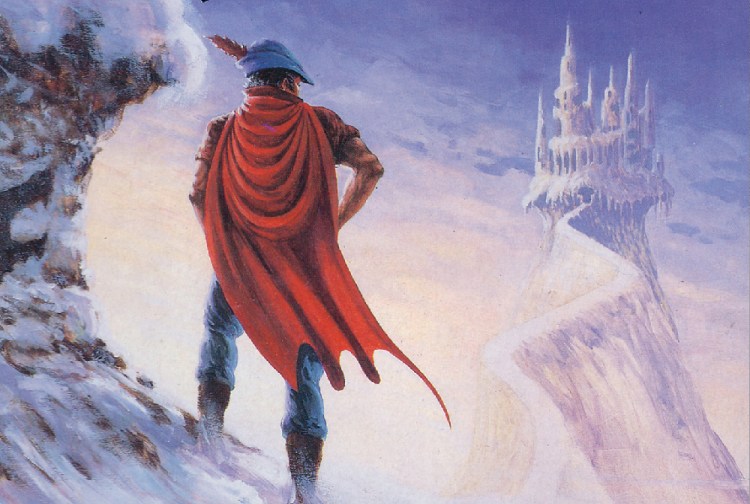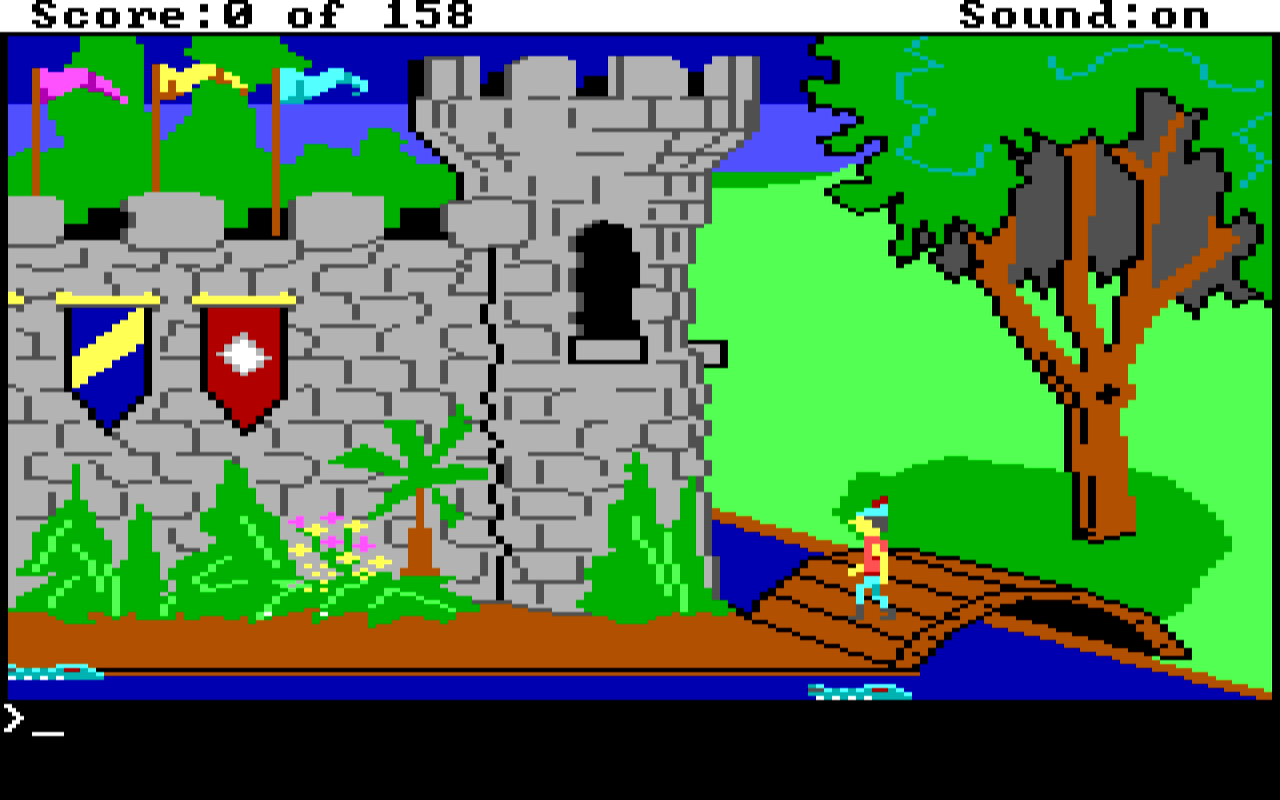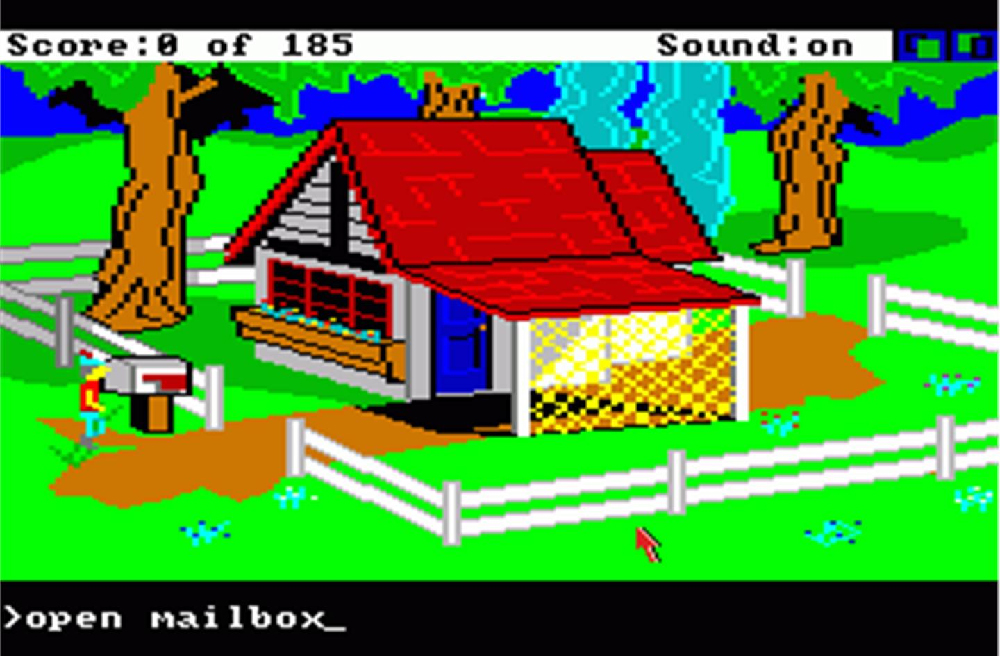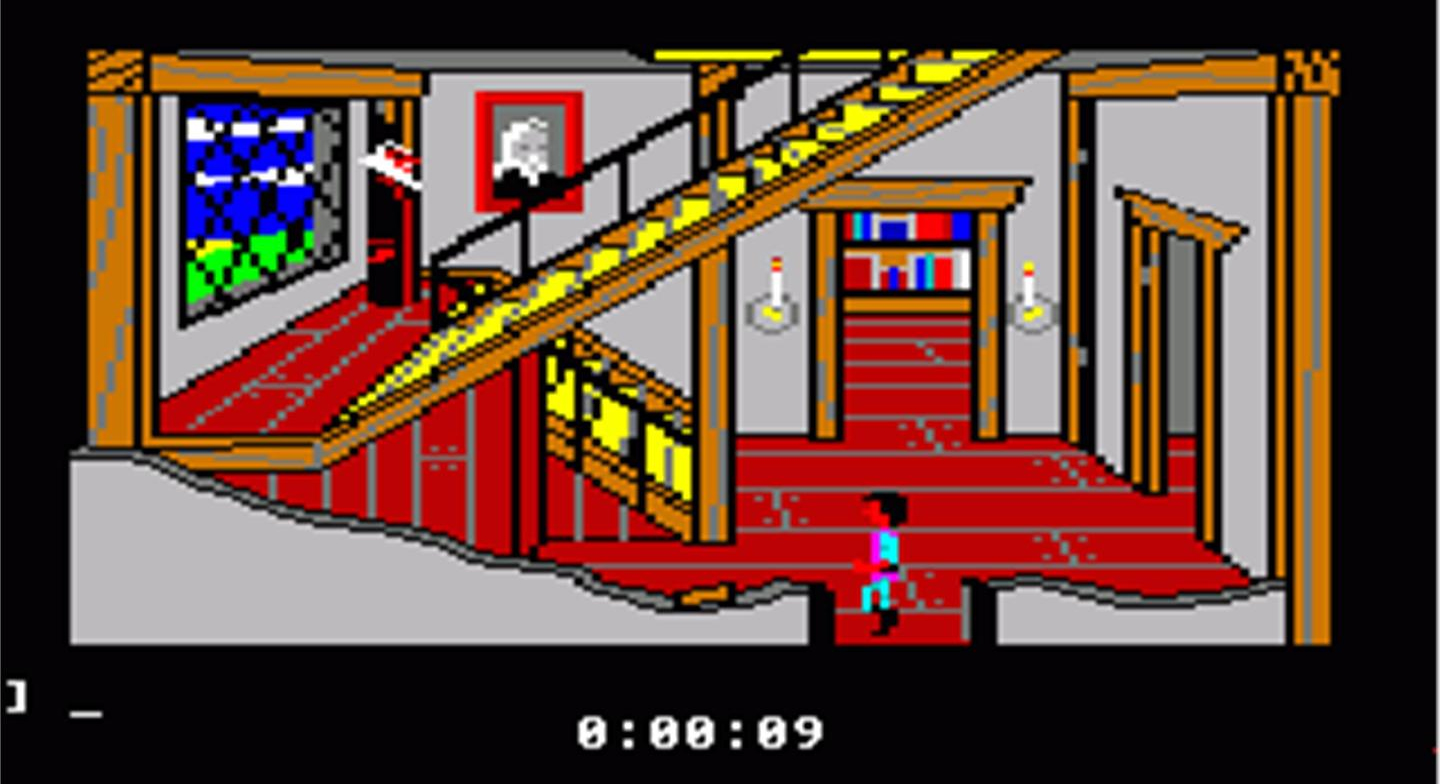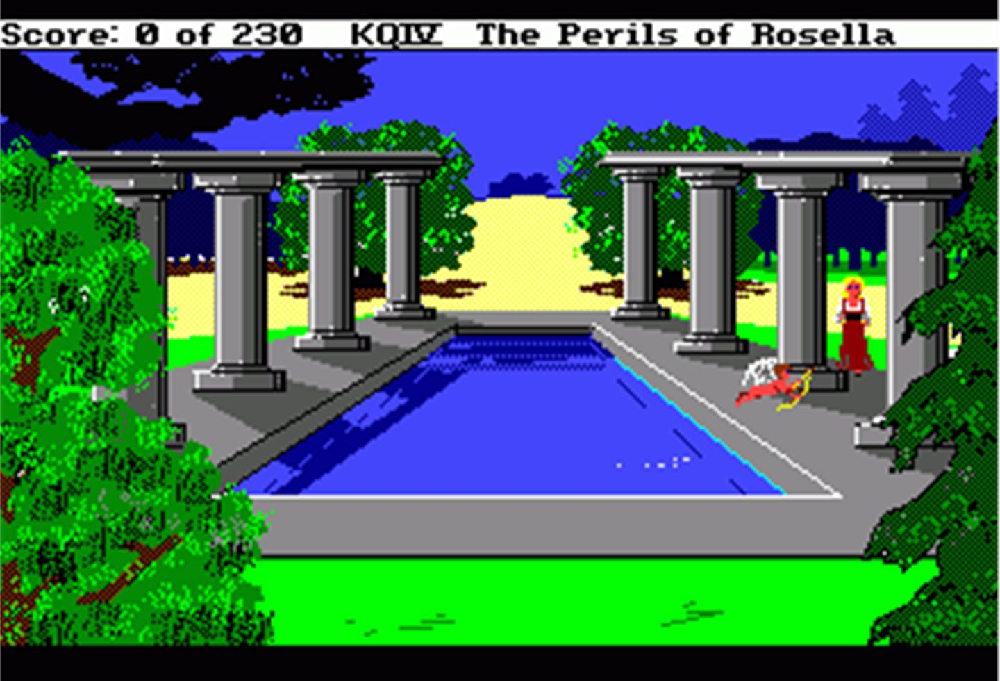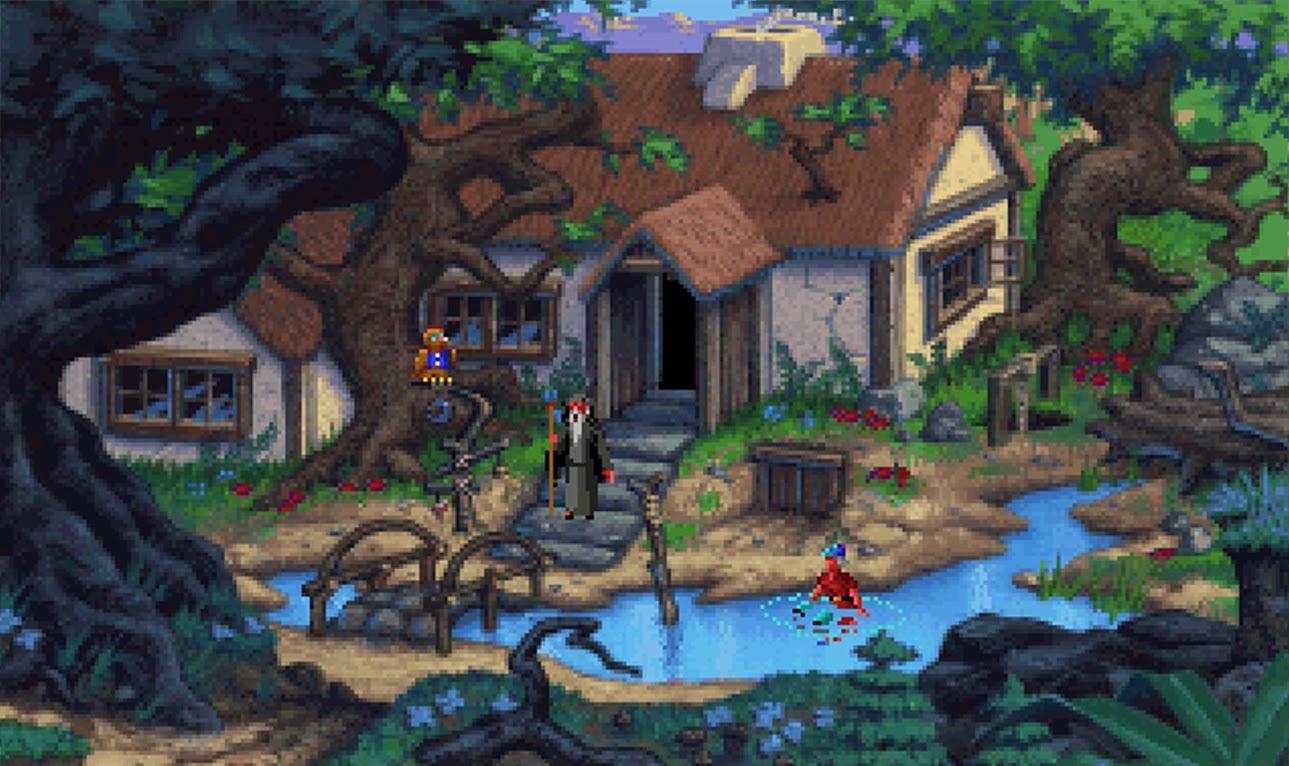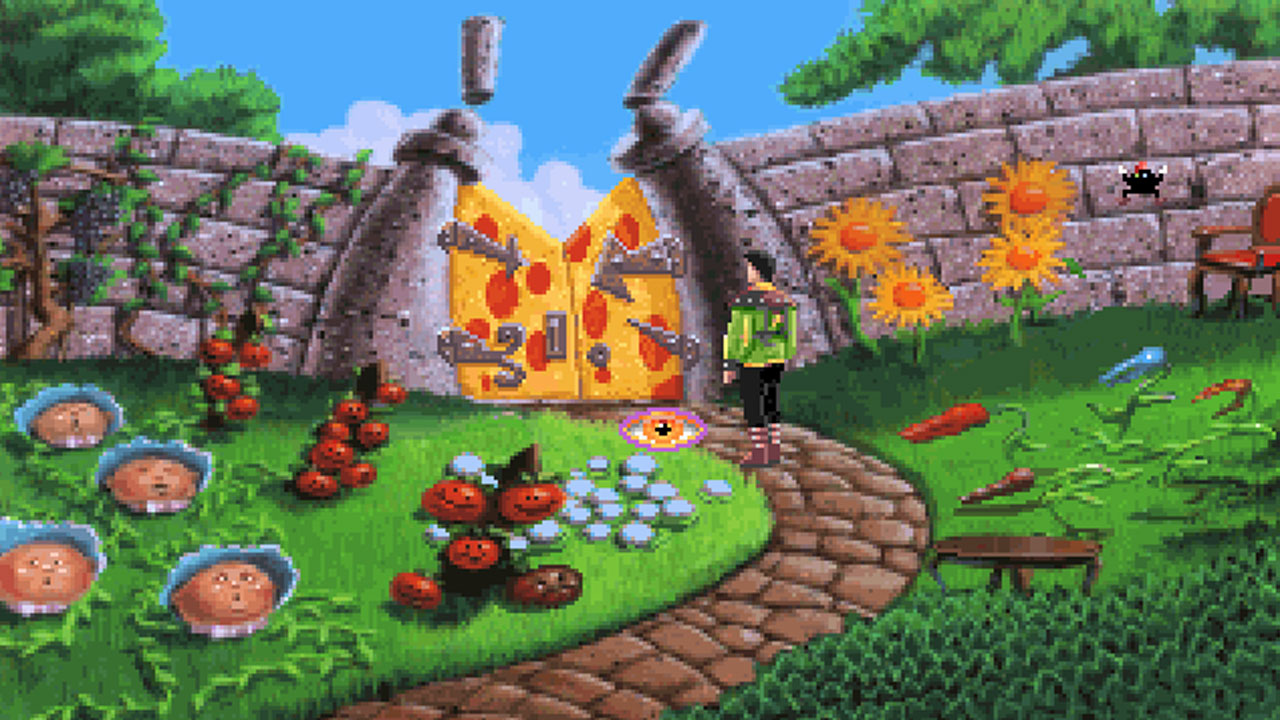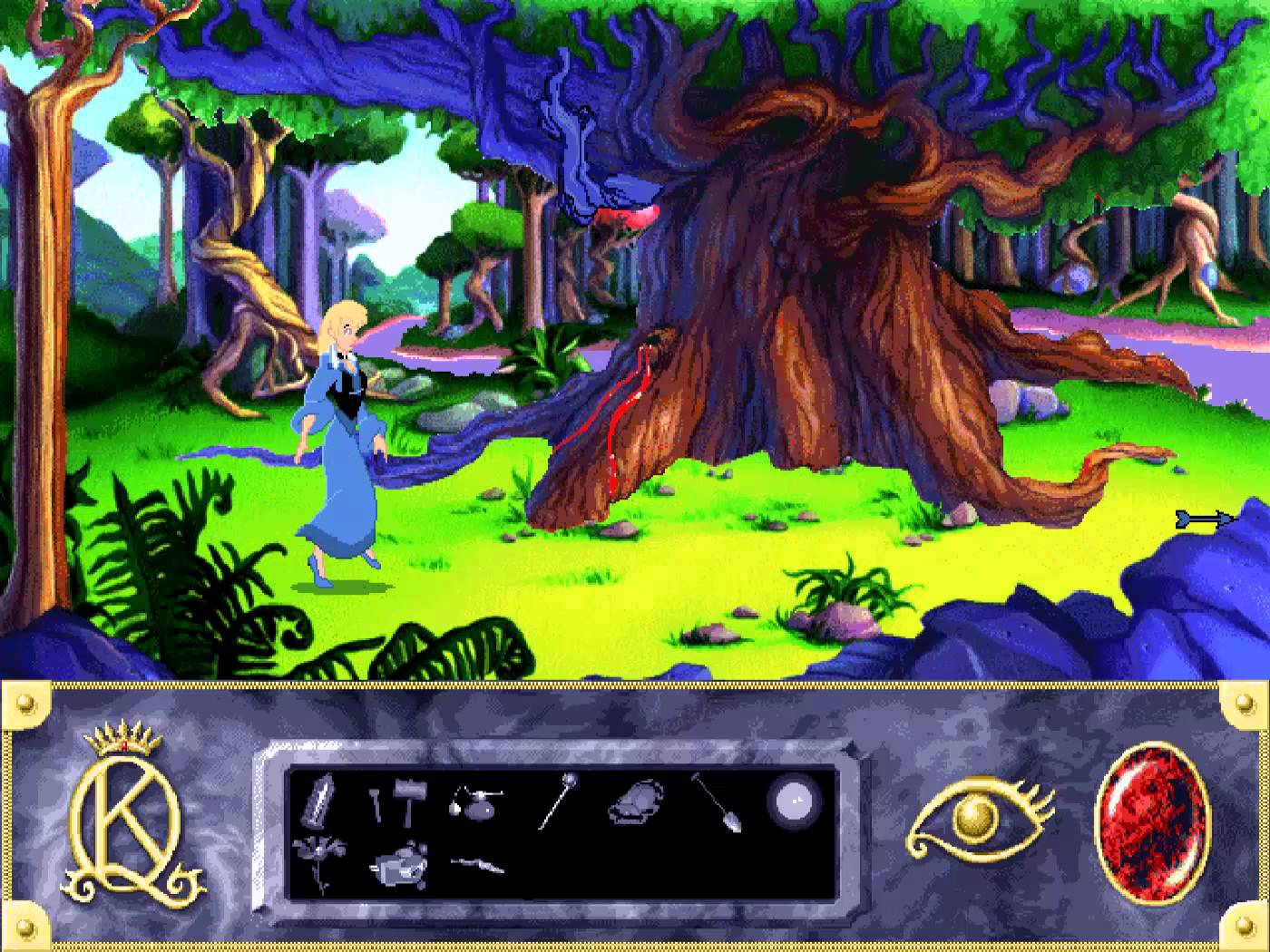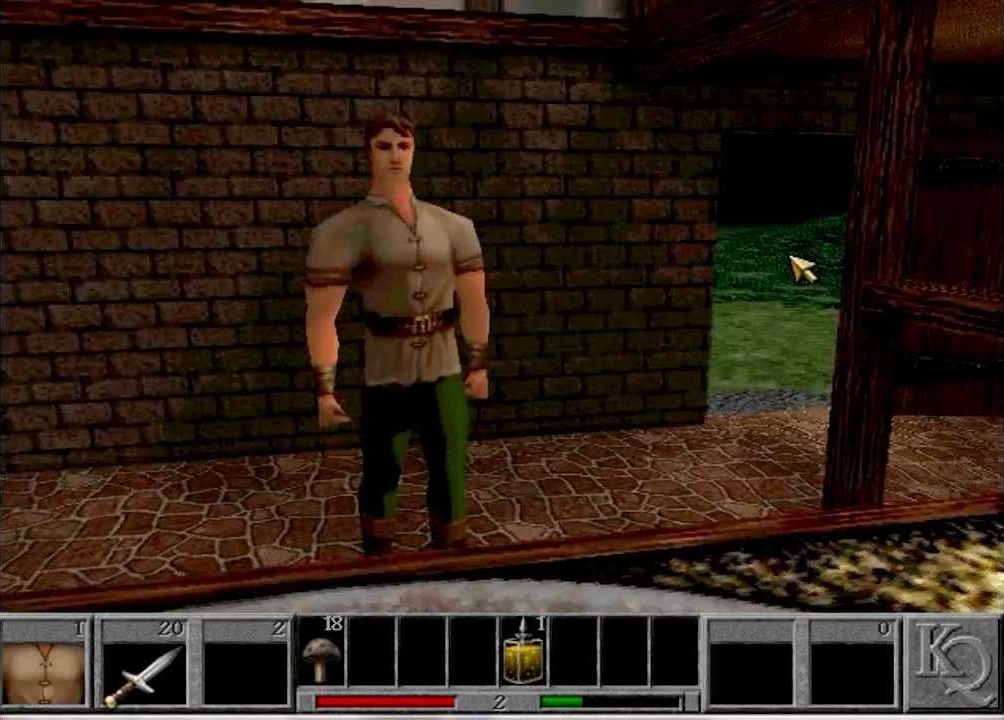The king has returned.
After an absence of over 15 years, the recently revived Sierra Entertainment is making a new King’s Quest. But why should you care? Well, King’s Quest was one of the oldest and longest-running series in the adventure gaming genre (which focuses on puzzle-solving by exploring and interacting with unique worlds). The brainchild of legendary game designer Roberta Williams, King’s Quest became a huge franchise with eight installments from 1983 to 1998.
So, yes, there’s a lot of King’s Quest out there. But don’t worry! We’re here to give you a little history lesson. So, if you’re wondering why people are happy to see this franchise revived, or if you need some refreshing (it has probably been awhile since most of us played one of these games), read on and enjoy.
King’s Quest: The Quest for the Crown
Release date: July 1983
The original King’s Quest might look extremely primitive by today’s standards, but it was a hugely ambitious game for its time, costing a whopping $700,000 and taking 18 months to make. Players could move around the world using the keyboard, but they still had to type in most of their commands (for example, “pick up stick”).
King’s Quest has a simple plot. The king of Daventry tasks his best knight, Sir Graham (the player character), to find three legendary treasures. If he does this, then Grahame becomes king. So, literally, you’re on a king’s quest.
Sierra remade King’s Quest in 1990 with better graphics and an expanded story. This was also the first time it received the Quest for the Crown subtitle.
Did you know?: King’s Quest was the first adventure game to use animated characters. Previous titles either used text or static images.
King’s Quest II: Romancing the Throne
Release date: May 1985
Graham, now king of Daventry, looks through a magic mirror and sees a lovely woman imprisoned in an ivory tower. So, of course, he sets off like the chivalrous dude he is and goes to save her.
King’s Quest II features gameplay and graphics similar to its predecessor although on a larger scale. It did, however, start the series’ trend of pun-tastic subtitles, with Romancing the Throne being an obvious play on the movie title Romancing the Stone.
Did you know?: Al Lowe created the music for King’s Quest II. He would later create the Leisure Suit Larry series of adventure games.
King’s Quest III: To Heir is Human
Release date: October 1986
A young lad, Gwydion, is kept against his will in the land of Llewdor by an evil wizard named Manannan. Gwydion escapes his imprisonment (by turning Manannan into a cat) and eventually travels to Daventry, where he rescues a princess that he eventually discovers is his sister. He also learns that he is the son of King Graham.
This is the first King’s Quest to not feature Graham as the player character, a controversial decision at the time, especially when Gwydion’s relationship to the first two games wasn’t revealed until toward the end of this story. To Heir is Human also featured auto-mapping, a first for the genre, which enabled players to instantly teleport to most locations that they’d already visited.
Did you know?: This time, Al Lowe was the lead programmer on To Heir is Human, just one year before the release of 1987’s Leisure Suit Larry in the Land of the Lounge Lizards.
King’s Quest IV: The Perils of Rosella
Release date: September 1988
With her father, King Graham, on the verge of death after a heart attack, Princess Rosella travels to the land of Tamir to recover a magical fruit that will cure him.
King’s Quest IV was notable for featuring a female protagonist, a rarity in adventure games at that time. It also used a 24-hour time cycle, meaning that the gameplay took place during real time. You had one day of in-game time to save your father and complete other quests.
Did you know?: King’s Quest IV was the first commercial PC game to support sound cards.
All right, now it’s time to continue our look at King’s Quest as the series begins to adapt, evolve, and eventually die. Typing goes in favor of pointing and clicking, the graphics become more colorful and vibrant, and … Mask of Eternity happened. The second half of King’s Quest’s run definitely had its highs and lows.
King’s Quest V: Absence Makes the Heart Go Yonder!
Release date: Nov. 9, 1990
Mordack, the brother of the evil wizard Manannan, who Graham’s son turned into a cat in King’s Quest III, takes revenge by enveloping Castle Daventry in a whirlwind and lifting it into the sky. Luckily, Graham was out when this happened, so it’s up to him (and a talking owl named Cedric) to save his family.
King’s Quest V marks the return of Graham as protagonist after a two-game absence, but it’s also the first title in the series to use a point-and-click interface instead of the traditional type-based one.
Did you know?: Poor Cedric wasn’t very popular with fans, largely because he wasn’t really much help and constantly needed saving. Even Sierra would constantly poke fun of the talking owl in future games, notably with a mini-game in Space Quest IV called Ms. Astro Chicken, which gives you points for running into him.
King’s Quest VI: Heir Today, Gone Tomorrow
Release date: Sept. 30, 1992
Prince Alexander (formerly known as Gwydion, the son of Graham and hero of King’s Quest III) has fallen in love with Princess Cassima, a girl who was with him when Graham saved the day at the end of King’s Quest V. He sails to the Land of the Green Isles to find her but discovers that an evil vizier named Abdul Alhazred plans to force Cassima to marry him. Of course, Alexander decides to save her.
A year after its 1992 release on DOS, Sierra released a CD-ROM version that featured voice acting and higher-resolution art. This made King’s Quest VI one of the first CD-ROM games on PC. It’s also regarded by many as the best in the series thanks to its open gameplay, multiple endings, clever puzzles, colorful locations, and impressive animation.
Did you know?: Speaking of animation, Sierra used a form of motion-capture technology to make character actions look as life-like as possible.
King’s Quest VII: The Princeless Bride
Release date: Nov. 23, 1994
Queen Valanice and Princess Rosella are having a conversation about the importance of marriage when a magical vortex sends them to the land of Eldritch. Don’t you hate it when that happens? Separated, the two try to reunite while saving the land from evil sorceress Malicia.
King’s Quest VII is the only game in the series to have more than one playable character and to feature Queen Valanice, wife of King Graham, in a protagonist role. It also featured a simplified point-and-click interface where your cursor would highlight over objects you could interact with. However, the art style was the most striking difference from past entries in the series. The game used cartoony graphics that looked Disney-esque.
Did you know?: King’s Quest VII is the only title in the series to not show or even mention King Graham.
King’s Quest: Mask of Eternity
Release date: December 1998
A jerk named Lucreto destroys some ambiguously powerful relic called Mask of Eternity, which of course causes all sorts of bad things to happen in Daventry. Luckily, King Graham’s magic mirror shows him the peasant Conner, who just happened to have a piece of the mask land right by him. Everyone else in the kingdom, including the royal family, gets turned to stone, so it’s up to Conner to restore the Mask of Eternity and save the day.
Mask of Eternity was a departure from King’s Quest tradition in many ways. It featured 3D, polygon-based graphics and, while it still had puzzles, put a large gameplay focus on combat. Even the title was notably different, with the series no longer numbered and the subtitle completely lacking in puns.
This was at a time when the traditional adventure game genre was thought dead by many (this is the same year that LucasArts released the critically acclaimed but commercial flop Grim Fandango), so its understandable that King’s Quest would try to find a way to evolve. However, fans did not welcome the changes to the series formula, and Mask of Eternity remains the red-headed stepchild of the series.
Did you know?: This is the only title in the franchise to not feature a member of King Graham’s family as a playable character.
VentureBeat's mission is to be a digital town square for technical decision-makers to gain knowledge about transformative enterprise technology and transact. Learn More
